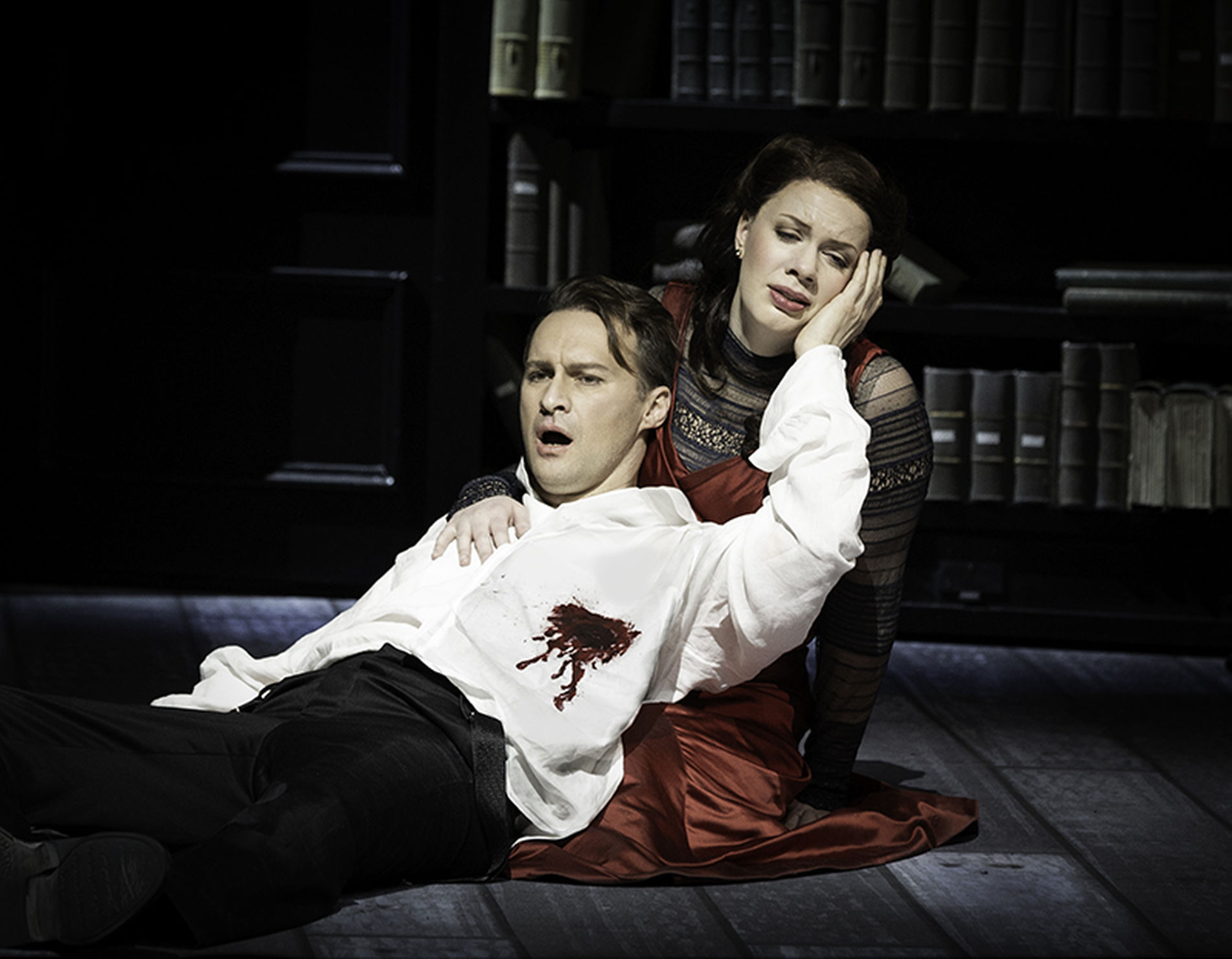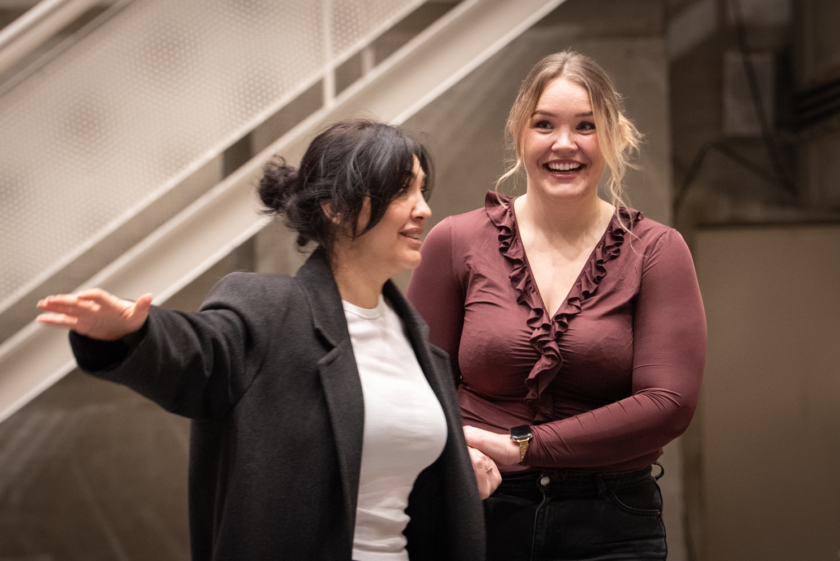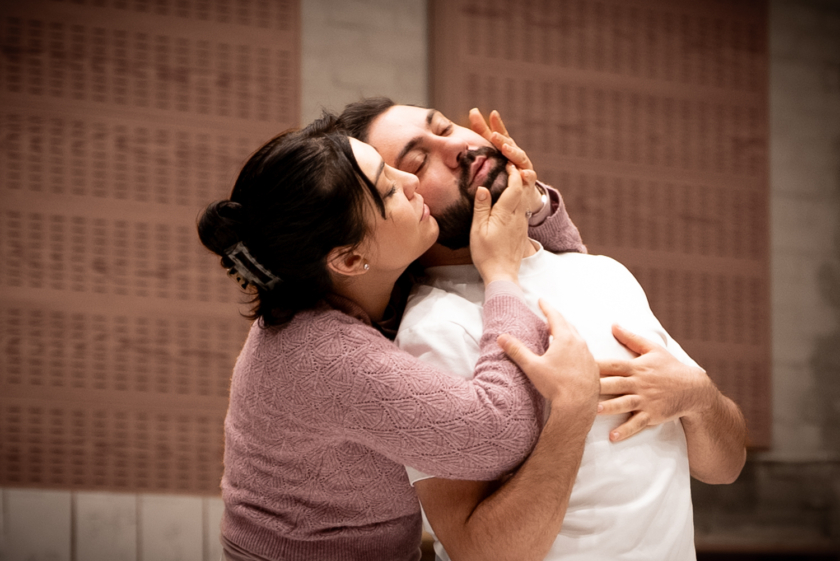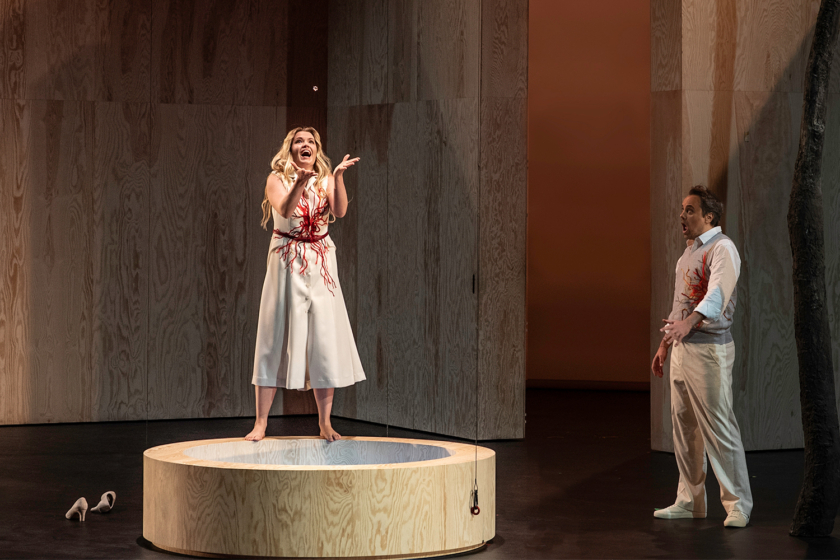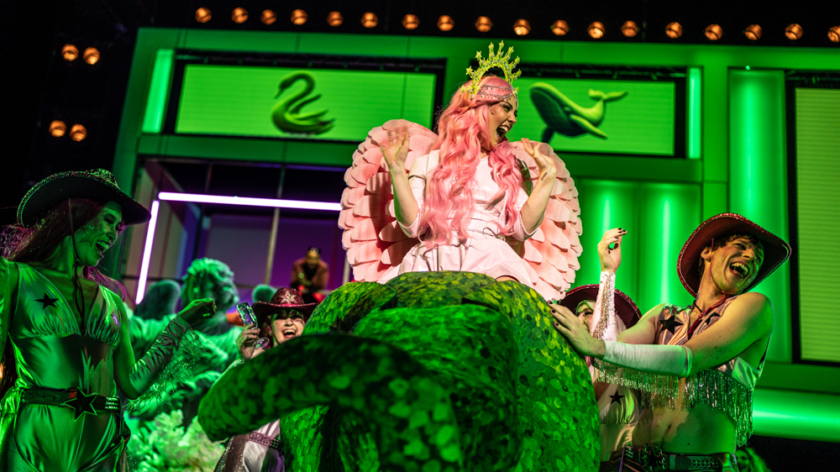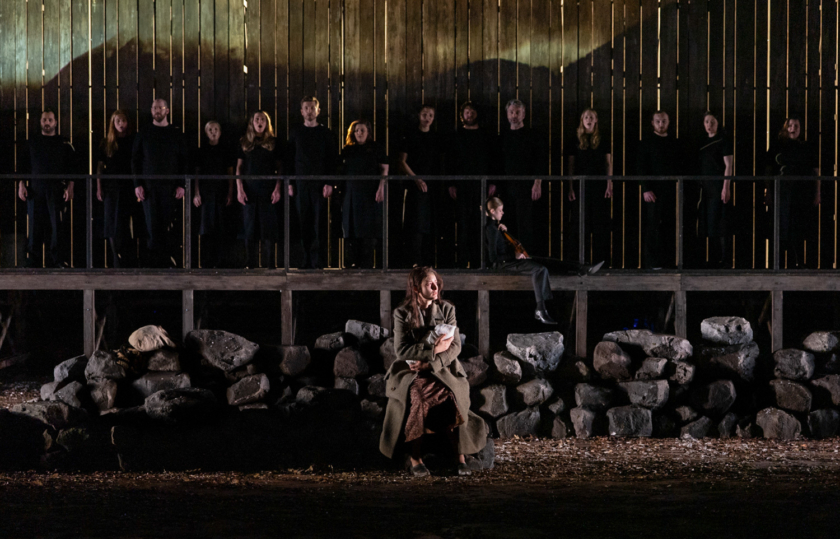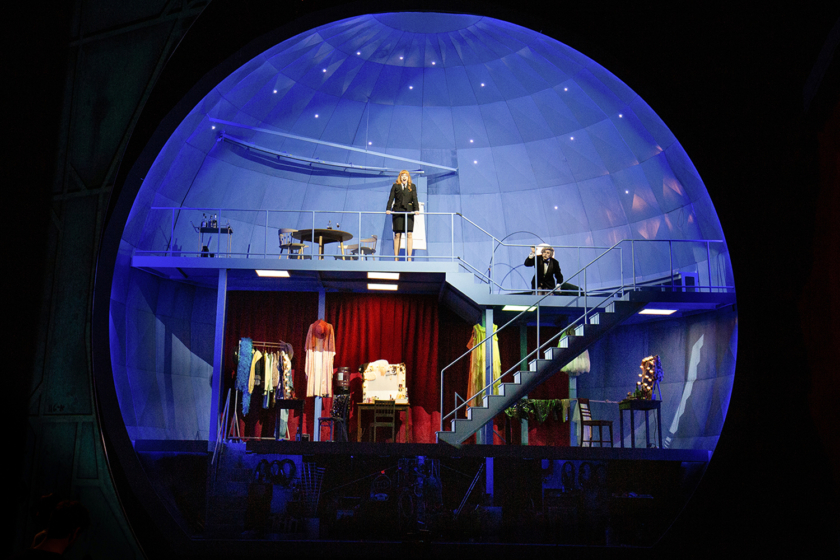How to make misery interesting
I´ve just been down in the rehearsal room where Massenet´s hero Werther has been dying since 10:00 this morning. The atmosphere is brisk and deeply practical.
Tenor Edgaras Montvidas is worried about his neck – all that last-gasp craning upwards to kiss Charlotte before his final breath expires on a D natural. Charlotte, our mezzo-soprano, Catriona Morison, Scottish and no-nonsense, is concerned that her corset may get stuck while she is trying to support his head.
Have no doubt, when Bergen National Opera´s new production of Werther opens on March 16th, we will all be in tears at the extraordinary trauma of the last scenes, at Charlotte´s journey of emotional self-discovery and at Werther´s ultimate sacrifice. Truly theatrical depictions of misery are hard to sustain – especially over the four acts of an opera which starts with innocence and a troupe of jolly children and ends with suicide. Charlotte and Albert, dutifully engaged to be married, have barely exchanged a hug when Werther appears, all poetry and angst, and she is thrown into life-disrupting confusion, heartbreak and self-questioning. Two hours plus is a long time in which to look soulful and fascinating. And as most of us know, misery is unkind to its victims. We are not at our most appealing when red eyed, pink nosed and quivering with passive aggression.
And of course animated misery on stage is hard to achieve in an opera without sickly consumption or blazing rows, some spectacular if unlikely misunderstandings or at least a distracting trip to the underworld. There have been countless productions of Ariadne auf Naxos in the last seasons – not one of them has really defeated the monotony of the eponymous heroine´s moping amongst her Nymphs and dreaming of death. Mimi, in La Boheme keeps it fairly short, expiring with some elegantly timed wheezing, surrounded by her weeping Bohemian friends. Courtesan Violetta fades gracefully - more coughing - reunited at last with her distraught lover. Verdi´s Desdemona barely gets a word in edgeways as Otello vents his rage and grabs her throat.
But my favourite angst-occasion was when playing in the orchestra for a European company best left unnamed, when the baritone, rushing on stage to announce further disaster to two weeping sopranos, was subject to perhaps the worst directorial decision in decades. It involved a dog, a table insufficiently fixed to the floor and a stage hand who changed profession rapidly after the event. Matters were not helped by an assistant conductor who had no doubt intended to embrace his most shining hour but who left the orchestra pit red with shame as opposed to triumph. The dog it was that had its day.
The director had decided that the scene lacked drama. The sobbing ladies were tedious, and the baritone, on his solo entrance, lacked gravitas. What better than to give him, an older gentleman in a tweedy suit and cape, a canine companion? Auditions were held for a suitably un-stage struck mutt, and eventually a large basset hound turned up slobbering a little but totally uninterested in theatrical life. Rehearsals proceeded. Stage management looked nervous but the dog was so lethargic, so indifferent, so floppy that anxieties subsided. I remember that it had a sign round its neck saying “it is forbidden to feed this animal”.
At the appointed moment, the baritone had to run on to the stage dragging the dog on a lead. He had to console, briefly, the ladies who raised their heads mournfully to ask what has happened. The baritone then tied the dog to the table where it snuffled and looked hopefully at the sopranos as if to say ‘any chance of a biscuit?’. The baritone then embarked on a long mopey aria about some depressing saga in a wood when he was hunting. Faintly energized, all four then left the stage.
All this went fine until the dog went sick and a substitute had to be found. Now it was clear, from moment one, that this animal had different aspirations. Its eyes sparkled and mouth hung open with that gummy doggy smile much loved by old ladies and photographers. There was little time for rehearsal and Casper (his name) seemed genuinely taken with the baritone.
So the ladies wept and sang and wiped their eyes for just long enough before the audience began peering at the programme from fatigue, when the baritone and Casper made their entrance. No dragging this dog. Casper frisked onto the set, tail upright and waving, as though about to audition for Dogs Got Talent. The baritone tied him to the table leg and began to sing. Casper cocked his head and looked attentive.
The ensuing duet was extraordinary. The dog took the upper lines with a clear, vibrato-less mezzo-soprano. The baritone, to his credit, sang on, while desperately trying to untie the dog from the table-leg. Casper, meanwhile, was trying to drag the table front stage. The conductor, urging the strings to play louder with one hand, was frantically signaling to stage management to get the animal off. Eventually a stage hand, having donned a cape and waving a branch – forest scene, remember – came on to the stage a little as though assisting Birnam Wood on its way to Dunsinane. The dog put up a fair resistance and sang all the way to the wings.
In truth, I don´t remember what happened next. Any weeping came from the orchestra pit where the players had long since given up and had got to the stage of mirth where breathing had become difficult. Maybe there was an interval. Someone else conducted the second half.
Werther, be assured, features no animals, and our Werther, Charlotte and Albert have no need of stunts to make their performance astounding. And great music, like Massenet, sweeps into the corners of the soul.
Meanwhile, rehearsals for the day have finished, and discussion on necks and corsets have turned into cast party plans for the weekend and how Karl Lagerfeld´s enigmatic cat Choupette is dealing with her grief. Someone is recalling a feline duet from Rossini. I´d recommend singing along.
Mary Miller
25th February 2019


